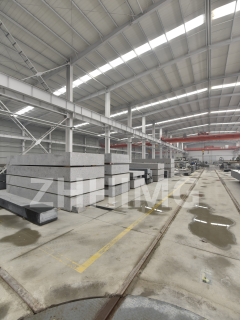When it comes to three-coordinate measuring machines (CMM), the precision and accuracy of measurements are critical. These machines are used in various industries like aerospace, automotive, defense, medical, and more to ensure that the manufactured products meet exact specifications and are up to the required standards. The accuracy of these machines is highly dependent on the quality of the machine's design, the control system, and the environment in which they operate. One such critical component that plays a crucial role in ensuring the accuracy of CMM measurements is the granite base.
Granite is a dense and tough natural stone that has excellent dimensional stability and is not affected by temperature changes. It possesses high stiffness, low thermal expansion, and vibration resistance, making it an ideal material for CMM bases. The material is also highly resistant to wear, corrosion, and deformation and is easy to maintain, making it a long-lasting option for CMMs.
In three-coordinate measuring machines, the granite base provides a stable and uniform surface to mount the machine's structure and components. The granite's stability ensures that the CMM is not affected by environmental factors like temperature fluctuations, vibrations, or ground movement, ensuring accurate and repeatable measurements.
The granite base is also an essential component in maintaining the proper alignment of the machine's axes. Any misalignment of the machine components can significantly affect the accuracy of the measurements, as errors can be compounded across the entire measuring range. With a stable and rigid granite base, the machine's structural components are firmly secured, and the machine's axes remain aligned, thus reducing errors and ensuring greater accuracy in measurements.
Another factor that makes granite an ideal material for CMM bases is its ability to resist thermal expansion. The temperature of the environment can significantly affect the accuracy of the measurements, as any changes in temperature can cause the materials used in the machine to expand or contract. However, granite has a low coefficient of thermal expansion, which means that it shrinks and expands very little under temperature changes, ensuring accurate measurements.
In conclusion, the granite base in a CMM is a critical component responsible for ensuring the machine's measurements' accuracy. Its dimensional stability, stiffness, and resilience to environmental factors like temperature changes, vibrations, and wear make it an ideal material for the CMM's base. Therefore, a CMM with a granite base ensures that measurements are accurate and repeatable, making it a valuable tool across industries where precision is key.
Post time: Mar-22-2024

